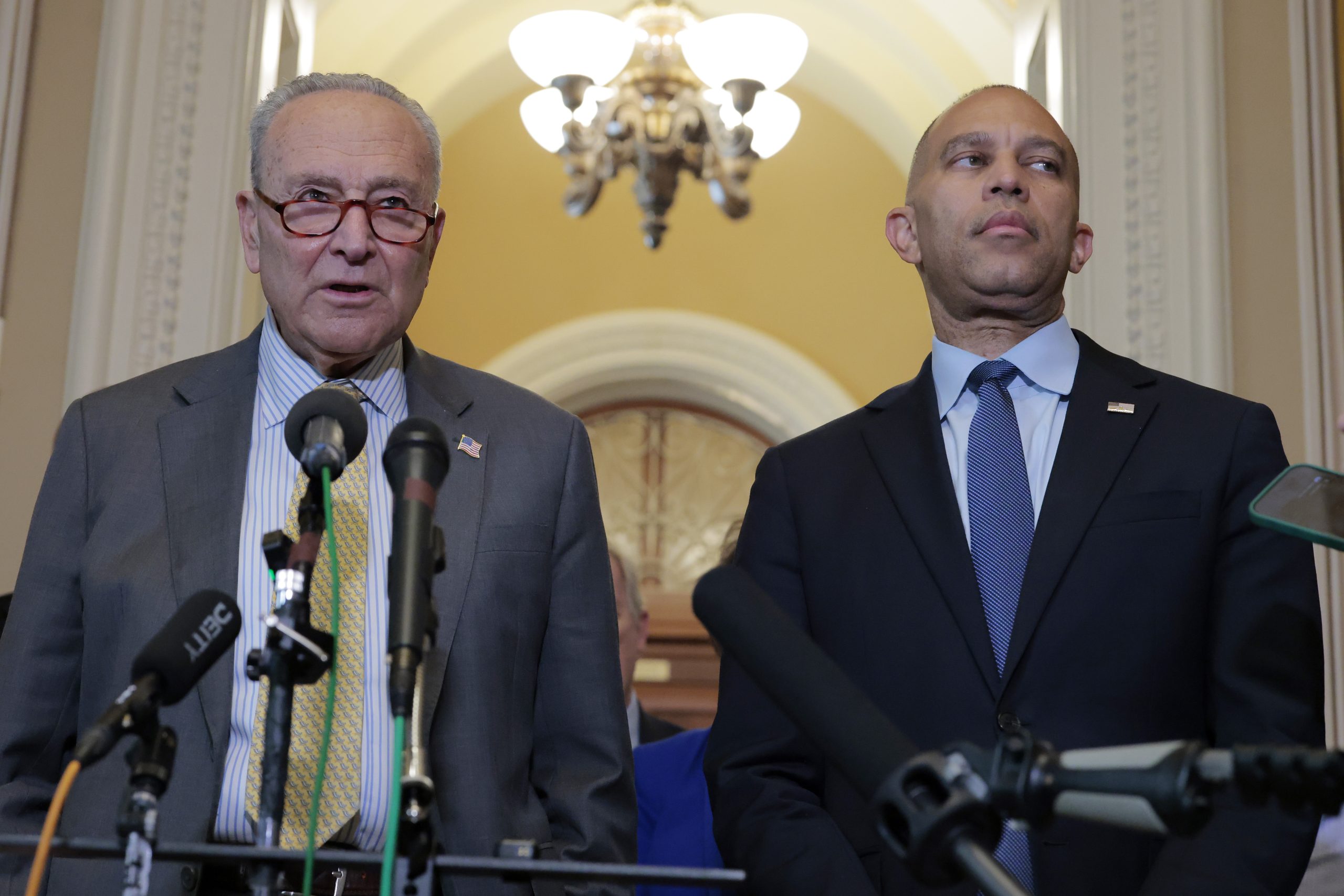The looming threat of a government shutdown has exposed a deep fissure within the Democratic Party, a battle not just over budgetary concerns, but over the very definition of political normalcy in the age of Trump. While the immediate trigger is President Trump’s alleged lawlessness, the debate raging within the Democratic ranks centers on the effectiveness of conventional political strategies in these extraordinary circumstances.
The “Normalcy” Conundrum:
The core of the Democratic disagreement lies in their approach to Trump’s presidency, which many view as a direct assault on democratic norms. Senate Minority Leader Chuck Schumer and House Minority Leader Hakeem Jeffries, along with other key figures, find themselves grappling with a fundamental question: Do the established rules of engagement—the tools of traditional political maneuvering—still apply when faced with a president openly flouting democratic principles? This isn’t about whether Trump’s actions are normal; the consensus is that they are far from it. Instead, the debate revolves around whether responding within the framework of “normal” politics—compromise, negotiation, and adherence to established processes—is a viable strategy, or if a more radical approach is necessary.
Strategic Divergence: Shutdown vs. Negotiation:
One faction argues that a government shutdown, a drastic measure, might be the only way to force Trump’s hand and compel him to adhere to the rule of law. This approach sees traditional tactics as ineffective against a president seemingly unconstrained by conventional political norms. A shutdown, though disruptive, is viewed as a necessary demonstration of resolve, a signal that the Democrats will not passively accept Trump’s actions.
Conversely, another faction advocates for a more measured response, prioritizing negotiation and compromise. This group fears that a shutdown could alienate moderate voters and harm the Democratic Party’s image. They believe in attempting to find common ground, even with a seemingly recalcitrant president, to prevent the disruption of essential government services. This strategy highlights the potential political risks associated with an all-out confrontation.
Beyond the Budget: A Fight for Democracy’s Future:
The debate transcends the immediate budgetary implications of a potential shutdown. It speaks to a larger struggle over the future of American democracy. The question of how to effectively counter a president who consistently undermines democratic institutions and norms is a defining challenge for the Democratic Party and, indeed, the entire nation. The choice between “normal” political tactics and a more forceful response reflects a deep uncertainty about the effectiveness of traditional political strategies in the face of unprecedented challenges. The outcome of this internal debate will have profound consequences, not only for the current political climate but also for the future of American democracy.
CONCLUSION:
The Democratic Party’s internal struggle over a potential government shutdown highlights a broader crisis of political strategy in the face of an unprecedented presidency. The debate underscores the tension between employing traditional political methods and the need to confront challenges that transcend conventional norms. The resolution of this internal conflict will significantly impact the party’s future trajectory and the nation’s ability to navigate the complex political landscape. The stakes are high, the choices are difficult, and the consequences will be far-reaching.
SOURCE INFORMATION:
TITLE: The Democrats’ shutdown debate is about something much bigger
DESCRIPTION: Democrats are currently in the midst of whether to shut down the government as a response to President Donald Trump’s lawlessness — see this recent Ezra Klein column for an overview of the arguments for and against. What struck me, reading Klein’s assessment, is how centrally the internal Democratic debate revolves around the question of […]
CONTENT: Senate Minority Leader Chuck Schumer (D-NY) and House Minority Leader Hakeem Jeffries (D-NY) speak to reporters on July 22, 2025 in Washington, DC. | Anna Moneymaker/Getty Images Democrats are currently in the midst of whether to shut down the government as a response to President Donald Trump’s lawlessness — see this recent Ezra Klein column for an overview of the arguments for and against. What struck me, reading Klein’s assessment, is how centrally the internal Democratic debate revolves around the question of “normalcy.” Not whether the second Trump presidency is normal: At this point, only the most blinkered deny that Trump is attempting to transform the United States into an authoritarian country. Rather, the debate is over the extent to which the rules of “normal” politics work in these abnormal times. By “normal” politics, I mean a basic vision of the postwar American democratic system and the role of parties within it. Normal politics begins with an ass
SOURCE: Vox
Based on materials: Vox





